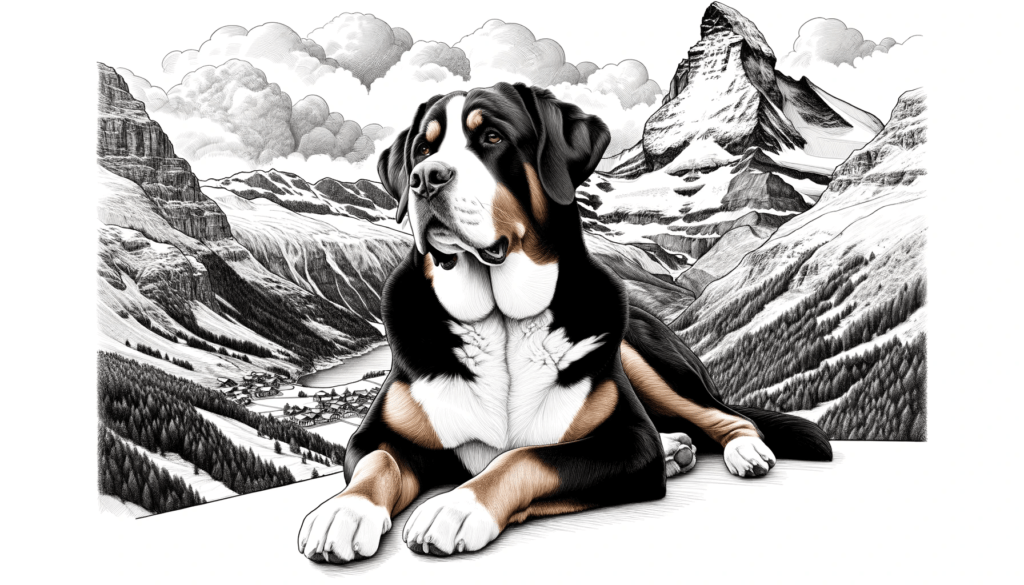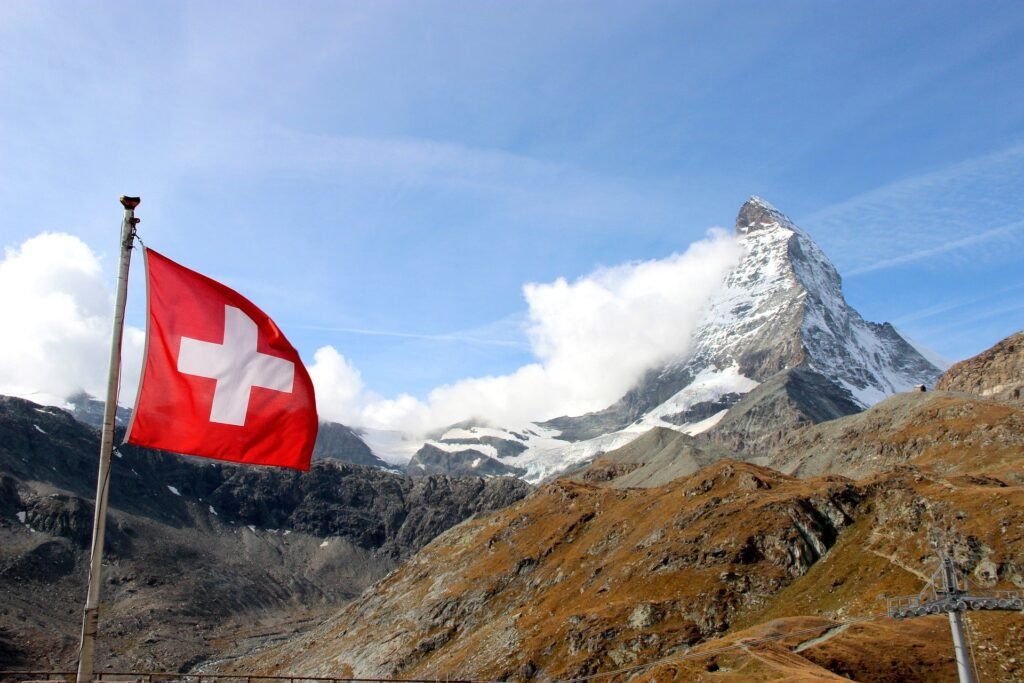Table of Contents
Introduction to the Greater Swiss Mountain Dog
Buy This Premium Website for Only $899 !
Acquire a high-authority website complete with content and a premium domain name.
Contact Us Today: Email: info@cleardesign.ch
The Greater Swiss Mountain Dog, affectionately known as “Swissies”, is a symbol of grace and power. Originating from the serene landscapes of Switzerland, this breed is among the oldest and most revered in the region. With their strong physique and gentle temperament, Swissies have carved a niche in the hearts of many dog lovers. Their vibrant history, combined with their unparalleled loyalty, makes them stand out in the canine world.
History and Origin
Tracing the lineage of the Greater Swiss Mountain Dog takes us back to the times of the ancient Romans. These dogs were initially brought to Switzerland by Roman legions, where they served dual roles as formidable war dogs and diligent farm aids. Over time, they became an integral part of the Alpine region’s culture, assisting in various farm tasks and being loyal companions to the locals.
Physical Characteristics
The Greater Swiss Mountain Dog is an epitome of strength and beauty. Their muscular frame, coupled with a vigilant gaze, makes them both formidable and endearing. Their physical attributes are not just for show; they are a testament to their hard-working nature and resilience.

Coat and Colors
Sporting a dense and short coat, the Greater Swiss Mountain Dog primarily flaunts a tri-color pattern. The combination of black, white, and rust gives them a distinctive and captivating appearance. This coat, while eye-catching, is also functional, providing them with the necessary protection against the elements.
Size and Weight
When it comes to size, male Swissies generally weigh between 115 to 140 pounds, while their female counterparts range from 85 to 110 pounds. This substantial weight is supported by a sturdy frame, designed for endurance and strenuous tasks.
Temperament and Behavior
The Greater Swiss Mountain Dog’s behavior is a blend of gentleness and alertness. Their deep-rooted loyalty makes them excellent family dogs, always vigilant and protective of their loved ones.
Interaction with Children
Their calm disposition and inherent patience make them ideal companions for children. They not only play with the young ones but also ensure their safety, making them a favorite among families.

Compatibility with Other Pets
While Swissies are generally friendly, early socialization is the key to ensuring they coexist peacefully with other pets. Their innate herding instincts may sometimes urge them to chase smaller animals, but with the right training, such behaviors can be managed.
Training the Greater Swiss Mountain Dog
Training a Greater Swiss Mountain Dog is an exercise in patience and consistency. Their substantial size makes early training crucial to ensure they grow into disciplined and well-mannered adults.
Common Training Challenges
Every breed comes with its set of challenges, and Swissies are no exception. Their independent streak can sometimes translate to stubbornness. However, with the right approach and techniques, they can be molded into obedient pets.
Health and Lifespan
With an average lifespan ranging from 8 to 11 years, the Greater Swiss Mountain Dog has a relatively long life for its size. Regular health check-ups, combined with a balanced diet, can play a pivotal role in ensuring they lead a healthy and fulfilling life.
Common Health Issues
Certain health concerns are more prevalent in this breed. Conditions like hip dysplasia and bloat can affect them. Being aware of the symptoms and ensuring timely veterinary visits can aid in early detection and treatment.
Dietary Needs
For the Greater Swiss Mountain Dog, a well-balanced diet is paramount. High-quality dog food, rich in proteins and essential nutrients, ensures they remain active and healthy.
Grooming Tips and Maintenance
Despite their relatively low-maintenance coat, regular grooming sessions are essential. Brushing not only keeps their coat gleaming but also helps in eliminating loose hairs and potential tangles.
Exercise Requirements
Being descendants of working dogs, they have a natural affinity for physical activity. Regular exercise, in the form of walks and play sessions, is vital for their mental and physical well-being.
Breeding and Puppy Care
Breeding is a responsibility that demands knowledge and commitment. Puppies, with their boundless energy, require dedicated care, training, and socialization from a tender age.
Adopting a Greater Swiss Mountain Dog
Choosing to adopt is a commendable decision. Numerous Swissies, through various circumstances, seek a loving home and a second chance at life.
Traveling with Your Greater Swiss Mountain Dog
Traveling with a pet, especially one as sizable as the Greater Swiss Mountain Dog, demands careful planning. Comfort is of utmost importance to ensure a pleasant and stress-free journey for both the pet and the owner.
Fun Facts and Trivia
Here’s a fun tidbit: Despite their imposing size, Swissies are known to have a soft corner for laps! They often forget their size and wouldn’t mind snuggling on their owner’s lap, embodying the term “gentle giants.”
Personal Experiences Owning a Greater Swiss Mountain Dog
Having a Swissie as a pet is a unique and rewarding experience. Their unwavering loyalty, combined with their playful antics, ensures that every day is filled with joy and laughter.
Greater Swiss Mountain Dog vs. Other Breeds
Every dog breed is unique, but Swissies have a special place due to their versatility. Whether it’s working on a farm or being a loving family pet, they excel in every role they undertake.
Caring for Senior Greater Swiss Mountain Dogs
As they advance in age, their needs and requirements change. Providing them with the right care, attention, and comfort is essential to ensure they enjoy their golden years.
FAQ
What’s the ideal environment for a Greater Swiss Mountain Dog?
Swissies thrive in spacious settings, preferably homes with expansive yards. Their love for the outdoors means they cherish open spaces where they can roam and play.
How often should they be groomed?
While they have a relatively low-maintenance coat, weekly brushing sessions are recommended to keep them looking their best.
Are they apt for apartment living?
Considering their size, they are better suited for homes with ample space. However, with adequate exercise and outings, they can adapt to apartment living.
What’s their average lifespan?
Typically, they live between 8 to 11 years, given proper care and attention.
How do they cope in cold weather?
Their dense coat is tailor-made for colder climates, offering them protection against chilly weather.
Are they congenial with other pets?
Absolutely! With appropriate socialization, they can coexist harmoniously with other pets.
Conclusion
The Greater Swiss Mountain Dog stands as a testament to the beauty, strength, and loyalty that canines can embody. Whether you’re seeking a diligent working dog or a loving family companion, a Swissie ticks all the right boxes. Their rich history, coupled with their endearing personality, ensures they leave an indelible mark on every heart they touch.
| Characteristic | Details |
|---|---|
| Average Lifespan | 8 to 11 years |
| Weight (Male) | 115 to 140 pounds |
| Weight (Female) | 85 to 110 pounds |
| Height | 23.5 to 28.5 inches |
| Dietary Needs | High-protein, balanced diet |


